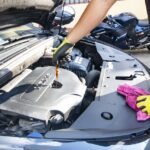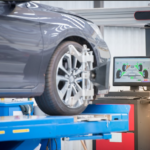Maybe your current car is becoming increasingly unreliable, and you’ve taken it for repairs so many times that you’ve come to the conclusion that it makes more financial sense to replace it. Well, the good news is that if you’re reading this article, you’ve already settled the dilemma of whether you should buy new or used.
Opting for a used car has the advantage that you can get great quality for a much lower price tag. On the other hand, the process is more challenging. With a new car, you know what you get, and you know what the car is worth. With a used car, you have to roll up your sleeves (literally) and investigate.
How can you know for sure that the car you’re looking at is worth the asking price? A used car will, by definition, have some wear and tear. And that’s ok. That’s what you expect. It’s just that you want to be aware of all these issues, and you want the price to reflect them.
Before we get to the nitty-gritty of the worst mistakes you can make when buying a used car, here are two guiding principles right off the bat. Number one is never let your emotions decide for you. Number two: remember that you’re free to walk away from a suspicious deal. Don’t give in to any pressure from the seller. The market is overflowing with used cars, so you can always find something better no matter how much they try to convince you otherwise.
Figure Out Your Budget and Financing Options
Before your shopping expedition can commence, you need to know how much money you’re working with. Let’s say you have your mind set on getting a Ford. You find a Ford dealership in your area with great reviews and lots of satisfied customers. Once you go there and talk to them, you can be sure that they’ll offer you some financing options. But how will you know if that’s the best offer you can get unless you first look into some lenders yourself?
Unless you have enough money saved up that you can pay for the car in full, you’re going to need financing, so you need to know your upper limit.
Another major mistake people make when buying a used car is that they focus too much on the monthly payment and don’t do the math. What we mean is that even though the monthly payment you’re offered works for your budget, it might involve a longer loan duration, so you end up losing a lot of money on the compounding interest you failed to take into account.
Also, keep in mind that interest rates for used cars already tend to be higher than those for new cars. That because if you take a loan to get a new car and you default on it, the lender can get a better resale value with less hassle than on a used car. You can as well buy here pay here in Montclair.
Is It Better to Buy From a Dealer or a Private Seller?
And we’ve reached another major mistake people make when shopping for a used car. Because of unflattering stereotypes related to used car salesmen, they’ll automatically assume that buying from a private seller is the better option.
If you were thinking of doing the same thing, you should know that you’ll find a lot of freelance dealers posing as private sellers so they can earn your trust more easily. They’ll go to auctions and buy used cars, make them presentable, and put them on several websites. One trick you can use to filter them out is to call the number listed on the ad and say that you’re calling about “the car for sale.” That’s it, don’t get specific. If they ask you follow-up questions so they can figure out which car you’re talking about, you’ll know that they have more than one, so there’s a good chance they’re a freelance dealer.
Now, to be fair, you’ll find a lot of honest and hardworking car dealers out there. They may be fast-talking, but if you spend five days a week negotiating with people, you’re obviously going to get pretty good at it. Plus, they have overhead expenses, which means they need to sell their used cars at a higher price than a private seller. The advantage is that you get a warranty. Not only that, but if you have any issues with the car after you’ve bought it, it’s a lot easier to find the car dealership than a private seller.
Not Inspecting the Car Properly
To check if a car is worth the asking price, you’ll first want to use the VIN (Vehicle Identification Number) to see if the car has any recalls. You can do this with a VIN decoder like the one from NHTSA. You can also check the car’s history for title problems and previous accidents.
Then you’ll want to physically inspect the car. Maybe now you’re thinking that you’re not a mechanic and you don’t know about these things. That doesn’t mean you can’t learn. You can also take the car to a qualified mechanic, and you should. But before that, there are some things you can check for yourself.
Start by inspecting the exterior of the car for rust, dents, and scratches. If you notice that the color hues don’t match in some areas or the body panels seem slightly uneven, it can mean that the car you’re looking at has been in an accident.
The interior is also a good indicator of whether the mileage advertised is real. If the clock shows less than 20,000, then the interior should be in really good condition. While you’re checking the condition of the upholstery, seat bases, side bolsters, steering wheel, central locking, lights, and ventilation system, pay attention to how the car smells. That’s because water damage and leaks can cause the car to have a musty smell.
Under the hood is typically where you’ll find the reason why the seller no longer wants the car. First, look at the area around the engine, which should be relatively clean. Take off the oil-fill cap and check its underside. Gunk can signal poor maintenance. You can also check if the head gasket is leaky or the engine block is cracked because this will cause the antifreeze to mix with the engine oil resulting in milky white oil.
Related Posts












